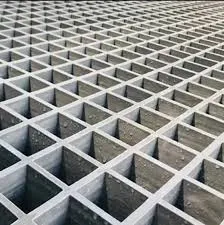
-
 Afrikaans
Afrikaans -
 Albanian
Albanian -
 Amharic
Amharic -
 Arabic
Arabic -
 Armenian
Armenian -
 Azerbaijani
Azerbaijani -
 Basque
Basque -
 Belarusian
Belarusian -
 Bengali
Bengali -
 Bosnian
Bosnian -
 Bulgarian
Bulgarian -
 Catalan
Catalan -
 Cebuano
Cebuano -
 China
China -
 China (Taiwan)
China (Taiwan) -
 Corsican
Corsican -
 Croatian
Croatian -
 Czech
Czech -
 Danish
Danish -
 Dutch
Dutch -
 English
English -
 Esperanto
Esperanto -
 Estonian
Estonian -
 Finnish
Finnish -
 French
French -
 Frisian
Frisian -
 Galician
Galician -
 Georgian
Georgian -
 German
German -
 Greek
Greek -
 Gujarati
Gujarati -
 Haitian Creole
Haitian Creole -
 hausa
hausa -
 hawaiian
hawaiian -
 Hebrew
Hebrew -
 Hindi
Hindi -
 Miao
Miao -
 Hungarian
Hungarian -
 Icelandic
Icelandic -
 igbo
igbo -
 Indonesian
Indonesian -
 irish
irish -
 Italian
Italian -
 Japanese
Japanese -
 Javanese
Javanese -
 Kannada
Kannada -
 kazakh
kazakh -
 Khmer
Khmer -
 Rwandese
Rwandese -
 Korean
Korean -
 Kurdish
Kurdish -
 Kyrgyz
Kyrgyz -
 Lao
Lao -
 Latin
Latin -
 Latvian
Latvian -
 Lithuanian
Lithuanian -
 Luxembourgish
Luxembourgish -
 Macedonian
Macedonian -
 Malgashi
Malgashi -
 Malay
Malay -
 Malayalam
Malayalam -
 Maltese
Maltese -
 Maori
Maori -
 Marathi
Marathi -
 Mongolian
Mongolian -
 Myanmar
Myanmar -
 Nepali
Nepali -
 Norwegian
Norwegian -
 Norwegian
Norwegian -
 Occitan
Occitan -
 Pashto
Pashto -
 Persian
Persian -
 Polish
Polish -
 Portuguese
Portuguese -
 Punjabi
Punjabi -
 Romanian
Romanian -
 Russian
Russian -
 Samoan
Samoan -
 Scottish Gaelic
Scottish Gaelic -
 Serbian
Serbian -
 Sesotho
Sesotho -
 Shona
Shona -
 Sindhi
Sindhi -
 Sinhala
Sinhala -
 Slovak
Slovak -
 Slovenian
Slovenian -
 Somali
Somali -
 Spanish
Spanish -
 Sundanese
Sundanese -
 Swahili
Swahili -
 Swedish
Swedish -
 Tagalog
Tagalog -
 Tajik
Tajik -
 Tamil
Tamil -
 Tatar
Tatar -
 Telugu
Telugu -
 Thai
Thai -
 Turkish
Turkish -
 Turkmen
Turkmen -
 Ukrainian
Ukrainian -
 Urdu
Urdu -
 Uighur
Uighur -
 Uzbek
Uzbek -
 Vietnamese
Vietnamese -
 Welsh
Welsh -
 Bantu
Bantu -
 Yiddish
Yiddish -
 Yoruba
Yoruba -
 Zulu
Zulu
fiberglass step
The Versatility and Benefits of Fiberglass Steps
Fiberglass steps have emerged as a popular choice in various industries and applications due to their exceptional strength, durability, and versatility. These steps are not only functional but also provide numerous advantages over traditional materials such as wood, metal, or concrete. As an engineered composite, fiberglass exhibits unique properties that make it suitable for a wide range of uses, from residential to industrial settings.
One of the most significant benefits of fiberglass steps is their resistance to corrosion and rust. In environments exposed to moisture, chemicals, or extreme weather conditions, metal steps can quickly deteriorate, while wooden steps may rot or warp over time. Fiberglass, on the other hand, is inherently resistant to these elements. This longevity translates into lower maintenance costs and a longer lifespan for fiberglass products, making them an economical choice in the long run.
Moreover, fiberglass steps are lightweight yet incredibly strong. This combination makes them easy to handle and install, which is particularly advantageous in construction settings where labor efficiency is vital. Their lightweight nature does not compromise their structural integrity; fiberglass steps can support considerable weight and withstand significant stress, making them suitable for both residential and commercial applications.
Safety is another paramount feature that fiberglass steps offer. Many fiberglass steps come with textured surfaces to prevent slipping, enhancing safety for users in various environments. This is especially crucial in industrial settings, where workers may encounter wet or greasy surfaces. The visibility of fiberglass steps can also be enhanced with bright colors or reflective materials, further promoting safety in low-light conditions.
fiberglass step

Additionally, fiberglass is non-conductive, meaning it does not conduct electricity. This quality is particularly important in electrical environments, where metal steps could pose serious hazards. Using fiberglass steps minimizes the risk of electric shock, providing peace of mind for both workers and employers.
Environmental considerations are also met with fiberglass steps. Many manufacturers produce fiberglass composites using recycled materials, resulting in a lightweight product with a smaller carbon footprint compared to alternatives. Furthermore, fiberglass does not require chemical treatments like wood, making it a more environmentally-friendly option in terms of both production and use.
In terms of aesthetics, fiberglass steps are available in various colors, designs, and finishes, allowing for customization to match existing decor or branding. This flexibility makes them an appealing option for architects and designers looking to create visually stunning spaces without sacrificing functionality.
In conclusion, fiberglass steps represent a forward-thinking solution for a variety of applications, offering durability, safety, and aesthetic appeal. Their unique properties make them a preferred choice in many settings, from industrial facilities to residential homes. As more industries recognize the advantages of fiberglass, it is likely that the demand for fiberglass steps will continue to grow, paving the way for innovative designs and applications in the future. Whether for functionality, safety, or environmental reasons, choosing fiberglass steps is a smart investment that pays dividends in performance and longevity.









